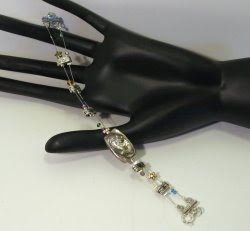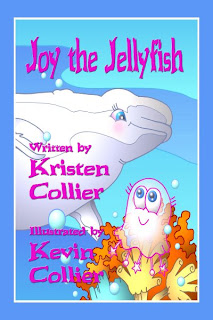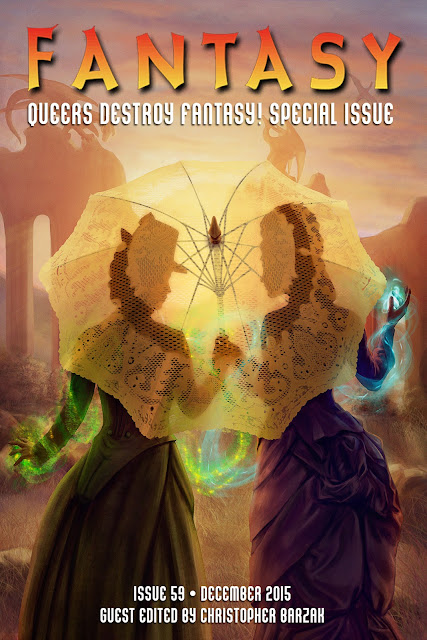I was honored to be the nonfiction editor for a special issue of
Fantasy magazine, part of the ever-growing
Destroy series from
Lightspeed, Nightmare, and
Fantasy — this time,
QUEERS DESTROY FANTASY!The editor-in-fabulousness/fiction editor was Christopher Barzak, the reprints editor was Liz Gorinsky, and the art editor was Henry Lien. Throughout this month, some pieces will be put online. So far,
Austin Bunn's magnificent story
"Ledge" is now available, as are our various
editorial statements. More will be released later, but most of the pieces I commissioned are only available by purchasing the
ebook [also available via
Weightless] or
paperback. There are magnificent pieces by Mary Anne Mohanraj, merritt kopas, Keguro Macharia, Ekaterina Sedia, and Ellen Kushner, and only merritt's "Sleepover Manifesto" will be online.
I owe huge thanks to all the contributors I worked with, to the other editors, to managing editor Wendy Wagner who did lots of unsung work behind the scenes, and to John Joseph Adams, who kindly asked me to join the team.
Jamie Marks Is Dead is based on a book I love by a writer I love:
One for Sorrow by
Christopher Barzak. I realized recently that I think of it as the first novel of "our" generation/group of writers — Chris is a few months older than me, and originally introduced me to probably half the writers and editors I know. I read
One for Sorrow in manuscript, exhorted Juliet Ulman to buy and edit it for Bantam, and celebrated its publication. Chris sent me a copy with the kindest inscription penned onto its title page that any writer has ever given me. I feel like a kind of distant (crazy) uncle to the book, and thus also deeply protective toward it. I didn't read most of the reviews when it was released for fear that I would seek out any negative reviewers and do terrible things to them that would get me arrested. When I found out it was being made into a movie, I was both excited for Chris and for the higher profile the book would likely gain, and terrified that the movie would just be awful. I mumbled to myself for weeks about the change of title before coming to accept it.
The movie was officially released in some major US cities today, and the distributor is also doing a simultaneous release on video-on-demand (Amazon, iTunes, etc.), so those of us, at least in the US, who can't get to one of the cities it's playing in can still see it. I watched it this morning.
The movie is not awful — far from it — and though at first I had my crazy-uncle fists clenched, ready to pounce on anything that even touched a hair of my beloved nephew's head, it was soon clear that this was a movie made from not only a general understanding of the book, but a profound sympathy with it. They're very different creatures, but if you love
One for Sorrow, I think you're likely to love
Jamie Marks Is Dead, too.
It begins in a style I've come to think of as "digital somber", a style common to a lot of artsy low-budget movies these days: muted colors; the clarity of light peculiar to a certain kind of digital lensing; long takes and fluid camera movement; dreamy music. It's become a familiar enough style that I now find myself skeptical of it at first, because too often it screams out, "Serious Movie!" before it earns its mood. (But at its best it can be devastating. See, for instance,
The Snowtown Murders.)
In this case, it's a good fit to the material, and director Carter Smith, cinematographer Darren Lew, and the various designers and decorators (Amy Williams, Steven Phan, Nora Mendis, Rachel Dainer-Best) do a superb job of uniting the elements into a whole that sustains a mood impressively. The production design and decoration in particular deserve notice, because the details are exquisite — though the movie makes absolutely no effort to drawn attention to it, the setting is not contemporary, but rather seems to be late '90s, early '00s (the time of the book). Further, though the novel is explicitly set in and around Youngstown, Ohio, the movie is more general in its setting: somewhere northeastish, somewhere working class, somewhere rusty and full of industrial and commercial ruins. (It was shot in New York state. Chris says it looks plenty like Ohio. It looks plenty like places I know in New Hampshire, too, the places the tourists don't go.)
Smith's background as a photographer serves him well, as he and Lew sustain a difficult look for the film without strain. Shot after shot is evocative but not ostentatious. One example (a screen capture doesn't do it justice, or I'd place a picture here): a high-angle long shot of a yellow ribbon of crime scene tape snaked across the wet ground of a grey riverbank on a moonlit night. The tape, though muddied, is the brightest object in the image, rivalled only by the white of driftwood and fragments of light rippling on the water. The image evokes mood and meaning, but most importantly it provides a perfect introduction for a ghost.
I wasn't sure if I was going to like Noah Silver as Jamie, because I had such a clear idea of Jamie in my own mind, an idea that has congealed over a decade of living with the novel, and the soggy-Harry-Potter styling of the character was very different from the lighter, whispier Jamie in my head. (Adam was always less defined for me, more an aural than physical image, since the novel is written from his first-person POV.) But Silver's performance won me over, especially in the second half of the film when he must be alluring, mysterious, innocent, and menacing all pretty much at the same time. In his first scenes, the lighting and make-up make him seem almost like a plastic mannequin, but as the scenes progress, he becomes more and more human — an odd and very effective choice for the representation of this ghost.
All of the performances are strong, and the film demonstrates quite well the adage that finding the right cast (and crew) is 90% of the success of a production. In pre-release photos from the film, I thought Cameron Monaghan as Adam looked a bit too much like a human Kewpie doll, but he gives an impressive performance. His physique is remarkably variable — he can play vulnerability and sensitivity as well as sharpness and hardness, with his face seemingly changing shape depending on the needs of the scene: at one moment, his face is soft and a bit round, at another, it's all cold angles. (Some of this is also the responsibility of the cinematographer and his lighting team.) Monaghan has excellent instincts, and Smith is smart enough to bring those instincts to fore by encouraging him to hold back: Monaghan's eyes tell entire stories.
Where Silver and Monaghan were not immediately in sync with how I'd imagined the characters, and thus had to (and did) win me over, Morgan Saylor was the Gracie in my mind's eye. I've rarely seen an actor so perfectly fit how I'd imagined a character when reading the original material. A big part of it is her voice, which is deeper and huskier than you might imagine if you just looked at her. It would be easy to make the character of Gracie into a cliché of the adolescent "bad girl", but the movie thankfully doesn't do that — as Saylor plays the role, Gracie is very much an individual, not a type. We don't actually learn a lot about her in the movie, but there is a richness to the performance that allows us to imagine so much that the film itself doesn't have time to convey.
Smith made some excellent choices with his screenplay and direction, particularly in how he focused the story. There's an epic quality to the second half of the novel that just couldn't be conveyed well in a 2-hour movie, never mind a 2-hour movie without a big budget. As any good artist does, Smith turns his limitations into opportunities. The close focus on Adam, Jamie, and Gracie (with some other folks wandering in and out of the story to create and complicate tension) allows the film to build a slow, careful emotional resonance. It's seductive, this movie, and it sticks its hooks in when you're not expecting it. Partly, this is because Smith decided to keep the dialogue to a minimum and to not explain everything. It's a movie of glances and glimpses, of possibilities more than answers. That will, I'm sure, bother plenty of viewers, viewers who want explanations for the logic of the ghost world (as if the supernatural must follow a logical system!), who will want some of the plot's mysteries solved more neatly, who will want some of the side stories tied up or justified — but this is a different sort of film, and its commitment to suggestiveness, its willingness to allow possibilities to linger, enhances the fundamental effect. Give yourself over to it, and this is a movie that will haunt you. The novel does this some, but as a novel it has the space to answer questions without closing off possibilities. Two-hour movies are more like short stories, and at its best moments this one reminded me of the effect of reading my favorite writer of ghost stories,
Robert Aickman.
For all its many great moments, the most extraordinary is the very last. Since the movie goes in a different direction for some of its later parts than the novel does, I had no idea how or where it would end. (Figuring out the end was, I know, one of Chris's biggest challenges when writing the novel.) What could it possibly do? How could it find the resonance it needed to be satisfying?
I'll just say this: the moment the credits started rolling, I was in tears. Tears not only because of the profound effect of the absolutely
perfect choice of ending, but also of relief that this beloved novel had been translated with such care and love to a very different medium.
By now, you've probably seen John Scalzi's post
"Straight White Male: The Lowest Difficulty Setting There Is" (and perhaps John's amusing
commentary on deleted comments and
follow-up post in response to some responses).
My post here is simply to point you toward three responses among the many, many, many that the post has drawn. Excerpts are here merely to entice you to read more, not to suggest that they are the only things you need to read from these excellent writers.
First,
Nick Mamatas:
...when class is fully integrated into an understanding of the difficulty setting of the Game of Life, I think the arguments get much clearer.
The question: "I'm a poor white guy; should I fight against systems of privilege?"
The answer: "Because you'll benefit from it. The more equal things are, the better off you are."
For rich white guys who ask the same question, well, they're clearly on the other side, so they don't need an answer.
All too often, Straight White Men do not see that their setting is easier, and they assume that those struggling against bigger challenges are simply poorer players. At first this is innocent — the Straight White Men are focused on surviving the game themselves, after all. They didn’t design it. But the “easy” setting’s invisibility breeds arrogance, not the humility necessary to acknowledge that you’re “winning” the game because a. the game is easier for you and b. the game itself is designed to benefit you most. The fact that privilege robs us of empathy and humility is nearly as poisonous as the advantages it brings, because humble, empathetic people would not gleefully skip through difficulty while leaving others to suffer.
What I’d like to add to John’s and Meghan’s furthering of Life on the Lowest Setting, the metaphor of privilege as a function of how easy or difficult life is based on character aspects, is that class does indeed count. If you’re a highborn mage instead of a lowly farmer’s son who happens to have a small knack for casting magic, you’ll receive all the best teachers, all the best training in the arcane arts, will have access to all of the materials you might need to cast a spell, which can be quite expensive. Or likewise, if you’re a highborn knight, you’ll receive all the best armor and weaponry and training in arms and defense, whereas the pub master’s kid will mainly know how to throw a punch and will swing wild without any really access to training.
Those are material considerations–the wealth aspect, or knowledge resources–to which a person of a certain socioeconomic identity generally has little access.
But class cultural considerations can also severely restrict some people, by learning your place, by taking direction because that’s what you were rewarded for, rather than learning to plan and set goals, rather than being among peopl
Dear Nebula Voters,
I know what your real purpose is with the nominees for this year's award. Don't think you can hide your secret, conspiratorial goals from me! I know what you really want to do is cause me immense angst by putting some of my favorite people up against each other in your various (nefarious!) categories. You know when it comes to awards I root for the people I know and like before I even consider anything else, because of course the people I know and like are all the greatest writer in the world, but what am I supposed to do when you, for instance, put VanderMeer up against Barzak in the novel category?!
I'm safe, at least, with the short story category. Jim Kelly is the only writer I know well there, so obviously he should win. Novelette is worse -- Paolo Bacigalupi is the one person whose short stories have caused me to write a long essay, and he's a really nice guy (well, as long as you don't burn lots of hydrocarbons in front of him. I tried digging an oil well at the World Fantasy Convention in 2005, and he threatened to punch me). Rachel Swirsky I've communicated with regarding Best American Fantasy (we reprinted her story "How the World Became Quiet: A Post-Human Creation Myth" in BAF 2, and all of the BAF contributors feel like family to me, even if I never talk to them, which is mostly what makes them feel like family...) And then there's Mr. Bowes, who once attacked me with a stiletto-heeled shoe when I suggested that Cats is not the greatest musical of all time. I've forgiven him, even though Starlight Express is obviously the greatest musical of all time, and in learning forgiveness, I have learned to appreciate the man himself, and so of course I want him to win as much as I want Paolo and Rachel to win. Maybe they all can. (Voters! Coordinate your efforts to please me!)
Novella is actually easy, too, because the only person there I've met is John Scalzi, and he's alright, even if I remain dead to him.
But the novel category ... it's killing me. I'm going to have to freebase my entire collection of pill-bottle cotton tonight just to calm my aching soul. Not only are Messrs. Barzak and VanderMeer, two of my favorite people, present there, but Paolo Bacigalupi is hanging out in that category as well, and so is China Mieville with The City & The City, a book I adored. And though I don't know Cherie Priest, I know her editor, who is also one of my favorite people, and thus is, by definition, the greatest editor in the world.
Okay, Nebula voters -- I give up! Uncle! Please please please start nominating more works by mean, nasty people I don't like! Or at least people I don't know! I'm working hard to be a recluse, so it shouldn't be all that difficult to locate more people I don't know. It will save me agonized nights of writhing on the floor, my loyalties pulling me in all directions, my heart torn asunder.
What's that you say? It's not all about me? Yes, I've heard that before, many times. Conspirators always deny their conspiracy. I know the truth, though, and in the immortal words of Bob Dylan: "I don't believe you!"
Meanwhile, congratulations to all!
Sincerely,
Patient #45403892, New Hampshire State Home for the Criminally Bewildered
PS
Whoever has my tinfoil hat, you'd bett
Ellen Kushner and Tempest Bradford both let me know that not only is the Interstitial Arts Foundation holding an auction of jewelry based on stories from Interfictions, but one of the pieces of jewelry is, in fact, based on my story "A Map of the Everywhere": "A Map of the Everywhere -- Boxcar Diner" by Sarah Evans.

I've tried to write something eloquent and thoughtful about how pleased I am anyone would find inspiration in something I'd written ... but basically all I want to say is: Wow! That's so cool!
In other cool news, Mumpsimus fave Chris Barzak has been nominated for the NewNowNext Awards from Logo, which is, apparently, a TV station (I don't have a TV). Chris is nominated in the "Brink of Fame: Author" category, which apparently means he's on the verge of becoming a contestant on a Bravo show. Or something. I don't know. But what I do know is you can go vote for him! Don't let Barzak Day in the Blogosphere have been for nothing, folks! Vote early, vote often! Then go bid on Sarah Evans's bracelet! Then vote again for Chris! Then bid again! Get into a feedback loop, friends! All the cool kids are doing it! Wheeee!

By:
Mayra Calvani,
on 1/23/2008
Blog:
Mayra's Secret Bookcase
(
Login to Add to MyJacketFlap)
JacketFlap tags:
joy the jellyfish,
shyness,
dolphin,
kristen collier,
whales,
blowfish,
anemone,
great white shark,
ocean animals,
kevin scott collier,
ocean animals,
friendship,
dolphin,
whales,
jellyfish,
blowfish,
joy the jellyfish,
kristen collier,
shyness,
anemone,
great white shark,
kevin scott collier,
jellyfish,
Add a tag

Joy the Jellyfish has a very serious problem. More than anything, he wants to make friends. But how on earth can he make friends when he's nearly invisible!
He tries to get the attention of the other Great Barrier Reef creatures--Amy Anemone, a school of sea horses, Gantian the Great White Shark, Bogart the Blowfish, Daphne the Dolphin--but because of his near-invisible nature, he's mostly ignored.
"My only wish is to have a friend," says Joy the Jellyfish. Then, as he keeps traveling deeper into the ocean, and the waters become icier and darker, he meets Bella Beluga the Whale, who teaches him the secret of friendship and how friendship itself has nothing to do with his nearly-invisible physical nature. Thanks to Bella, Joy learns how to overcome shyness and make friends. More confident, he swims back to the reef, this time powered with the knowledge of true friendship.
Joy the Jellyfish is a sweet story about friendship and about how to overcome shyness in order to make friends. The prose and dialogue are engaging and the brightly colored illustrations captivating. This is a book that will make a fine, delightful gift to any child, not only because of its beautiful artwork and engaging plot, but also because it teaches the different animals which inhabit the great barrier reefs. This book is the second collaboration between talented illustrator Kevin Scott Scollier and his author wife, Kristen. I hope this book will not be their last and I certainly look forward to more children's picture books from this winning team.
*****
JOY THE JELLYFISH
Written by Kristen Collier
Illustrated by Kevin Collier
Dragonfly Publishing
October 2007
24 pages
Paperback: $12.99
Hardcover: $25

By:
Mayra Calvani,
on 1/11/2008
Blog:
Mayra's Secret Bookcase
(
Login to Add to MyJacketFlap)
JacketFlap tags:
joy the jellyfish,
kristen collier,
whales,
dragonfly publishing,
kevin collier,
picture books,
ocean,
sea,
whales,
jellyfish,
joy the jellyfish,
kristen collier,
dragonfly publishing,
kevin collier,
sea,
jellyfish,
Add a tag

JOY THE JELLYFISH
24 pages,
Written by Kristen Collier
Illustrated by Kevin Collier
Dragonfly Publishing,
October 2007
24 pages
Paperback: $12.99
Hardcover: $25
I just finished reading this truly delightful children's picture book about a little Jellyfish named Joy and her search for true friendship. I read it to my ten-year old daughter and she loved it and found the illustrations charming! You can always count on a child for an honest review :-)
I'll be posting my review in a few days, so stay tuned!
Best,
Mayra

Kevin Scott Collier Drawing With Children at a Recent Book Signing
Listen to Book Bites for Kids, LIVE on blogtalkradio.com today at 2:00 central time when author/illustrator Kevin Scott Collier will be the guest.
Collier and his wife, Kristen, have a new book out called Joy, the Jellyfish.
Here’s just one of the colorful illustrations from this cute book:
 Listen to Book Bites for Kids at Blogtalkradio.com and call in and ask a question or make a comment at 1-646-716-9239.
Listen to Book Bites for Kids at Blogtalkradio.com and call in and ask a question or make a comment at 1-646-716-9239.
blogtalkradio,
Book Bites for Kids,
Joy the Jellyfish,
Kevin Scott Collier
.jpg?picon=694)
By: Writing for Children,
on 11/2/2007
Blog:
The National Writing for Children Center
(
Login to Add to MyJacketFlap)
JacketFlap tags:
Children's books,
childrens books,
Book review,
author interviews,
author interview,
Book Bites for Kids,
blogtalkradio.com,
blogtalkradio,
Joy the Jellyfish,
Kristen Collier,
Add a tag
 Children’s author Kristen Collier is today’s guest on Book Bites for Kids, LIVE on blogtalkradio.com at 2:00 central. She’ll talk about her new book, Joy the Jellyfish.
Children’s author Kristen Collier is today’s guest on Book Bites for Kids, LIVE on blogtalkradio.com at 2:00 central. She’ll talk about her new book, Joy the Jellyfish.
Listen to Book Bites for Kids here and call in to ask a question or make a comment during the LIVE show at 1-646-716-9239.
author interview,
blogtalkradio,
Book Bites for Kids,
childrens books,
Joy the Jellyfish,
Kristen Collier











 Listen to Book Bites for Kids at
Listen to Book Bites for Kids at  Children’s author Kristen Collier is today’s guest on Book Bites for Kids, LIVE on blogtalkradio.com at 2:00 central. She’ll talk about her new book, Joy the Jellyfish.
Children’s author Kristen Collier is today’s guest on Book Bites for Kids, LIVE on blogtalkradio.com at 2:00 central. She’ll talk about her new book, Joy the Jellyfish.
I have to say that the list is pretty impressive. Unfortunately, i havent read as many (any) of them outside of the YA catagory. The Andre Norton Award is a toss up between Ice (great book if you havent read it) and The Girl Who Circumnavigated Fairlyand in a Ship of Her own Making. Both were fantastic, though the latter was produced as a donate-what-you-can project on the authors website. I think that's novel enough to earn it some points (and it was great). I'll be interested to see who wins.